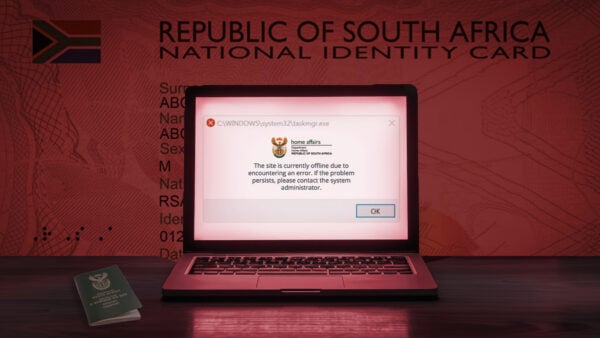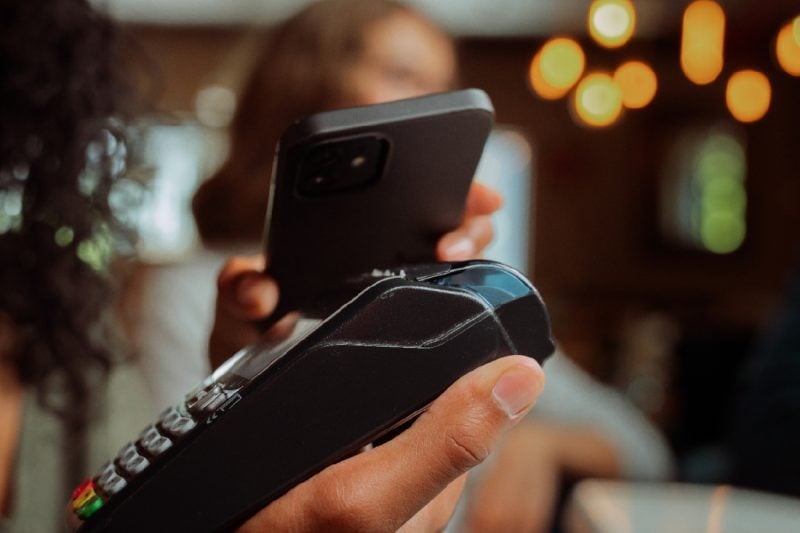South African banks working to fix major app crime problem

South Africa’s major banks are employing various tactics and features to combat the rise in forced app-initiated transactions made by customers being held by kidnappers.
South African Police Service crime statistics showed an alarming increase in kidnappings between the service’s last two financial years.
In 2023/2024, the police registered 17,061 kidnapping reports, an 11% increase from 2022/2023. Over the past decade, reported kidnappings have increased 260%.
Previously, Kidnappers primarily targeted high-net-worth individuals to withdraw money at ATMs or extort ransoms from their families or companies.
However, police and private security companies have observed an increase in “express kidnappings” of soft targets including lower-income and middle-income victims.
With the rising adoption of digital solutions to make banking more convenient, South Africans are moving away from cash-based transactions.
This change has reduced the amount of cash people have to carry around and decreased opportunities for criminals to make a quick score through quick-getaway robberies while a victim withdraws or deposits money.
Banking apps also provide extensive transactional and account management capabilities, including the ability to quickly change daily or monthly payment and withdrawal limits.
It is even possible to take up loans or increase overdrafts within minutes.
The apps also feature biometric security and two-factor authentication to stop petty phone grabbers from accessing customers’ accounts.
As a result, criminals must often have the customer present to perform certain actions on their accounts, necessitating the need to hold them against their will for prolonged periods.
MyBroadband asked South Africa’s major banks how they were tackling this complex and increasing crime, particularly considering that blocking forced transactions could pose a threat to the lives of their customers.
FNB’s head of InterfaceX, Giuseppe Virgillito, told MyBroadband that the issue was a global phenomenon requiring broad cooperation from industry stakeholders.
The bank helped drive the establishment of an industry steering committee partnering with law enforcement agencies to tackle the problem of kidnappings and forced transactions.
FNB has also established a dedicated team of trained professionals to deal with and respond to kidnapping incidents specifically.
“These individuals are empowered to make expeditious decisions regarding, inter alia, blocking of accounts, or tracing of funds as time is often of the essence in the various kidnapping scenarios,” Virgillito said.
In terms of features within their apps, FNB lets customers choose what accounts must be visible.

Absa’s chief fraud and analytics officer, Ulrich Janse van Rensburg, said the bank had not specifically observed increased reports of forced transactions among its customers.
Nonetheless, it was investing significantly in app security to combat the crime.
“Our customers’ safety in instances posing a serious risk to life is of greatest concern,” Janse van Rensburg said.
Nedbank’s head of fraud detection, Lucas Venter, said the bank’s security strategies were continually evolving to address emerging risks like forced transactions.
“However, due to the sensitive and potentially life-threatening nature of these crimes, we are limited in the specifics we can disclose publicly,” Venter said.
Venter said although technology provided various possibilities to address the issue, each solution must be carefully weighed against potential unintended consequences.
“In high-stress situations involving armed perpetrators, such measures could unintentionally place clients in greater danger or prolong their ordeal,” Venter said.
Discovery Bank today announced that it was launching a panic code feature that will allow its app users to set an unlock code for their most valuable accounts that alerts its fraud department and law enforcement that the customer is in distress.
Lower-cost banks also developing solutions
Capitec also said it was continually working to improve its forced transaction detection methods without compromising security or the user experience.
One of the bank’s in-app solutions to limit the potential impact of forced transactions is Feature Lock.
That function allows users to lock access to specific parts of their app for a particular time before being allowed to use them again.
“This helps our clients retain control over their accounts, even in difficult or risky situations,” Capitec said.
The bank said it was working on further updates to give customers even greater control over their accounts, enabling them to respond quickly and safely in emergencies.
Yatin Narsai, the CEO of one of South Africa’s youngest banks — Bank Zero — told MyBroadband the bank had not noticed an increase in reports of payments under duress among its customer base.
However, it has observed customers taking drastic measures like deleting their apps when travelling and reinstalling them when they arrive at safe destination.
Bank Zero is also working on in-app feature to combat the crime.
“It’s in the early stages and we’re excited about trying to solve this traumatic problem,” Narsai said.
































